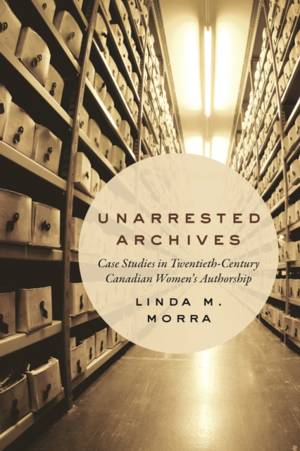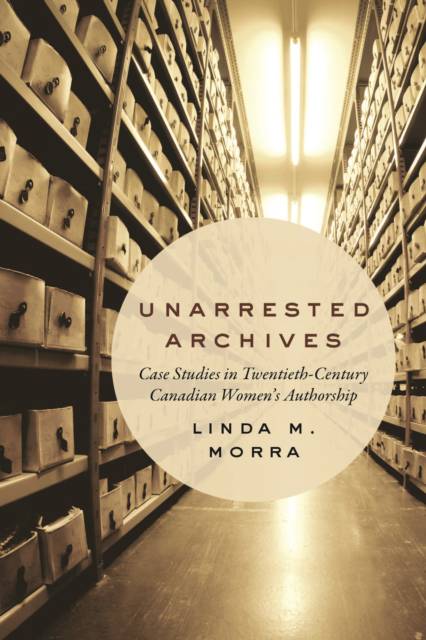
- Afhalen na 1 uur in een winkel met voorraad
- Gratis thuislevering in België vanaf € 30
- Ruim aanbod met 7 miljoen producten
- Afhalen na 1 uur in een winkel met voorraad
- Gratis thuislevering in België vanaf € 30
- Ruim aanbod met 7 miljoen producten
Unarrested Archives
Case Studies in Twentieth-Century Canadian Women's Authorship
Linda M MorraOmschrijving
Calling upon the archives of Canadian writers E. Pauline Johnson (1861-1913), Emily Carr (1871-1945), Sheila Watson (1909-1998), Jane Rule (1931-2007), and M. NourbeSe Philip (1947- ), Linda M. Morra explores the ways in which women's archives have been uniquely conceptualized in scholarly discourses and shaped by socio-political forces. She also provides a framework for understanding the creative interventions these women staged to protect their records. Through these case studies, Morra traces the influence of institutions such as national archives and libraries, and regulatory bodies such as border service agencies on the creation, presentation, and preservation of women's archival collections.
The deliberate selection of the five literary case studies allows Morra to examine changing archival practices over time, shifting definitions of nationhood and national literary history, varying treatments of race, gender, and sexual orientation, and the ways in which these forces affected the writers' reputations and their archives. Morra also productively reflects on Jacques Derrida's Archive Fever and postmodern feminist scholarship related to the relationship between writing, authority, and identity to showcase the ways in which female writers in Canada have represented themselves and their careers in the public record.
Specificaties
Betrokkenen
- Auteur(s):
- Uitgeverij:
Inhoud
- Aantal bladzijden:
- 256
- Taal:
- Engels
Eigenschappen
- Productcode (EAN):
- 9781442626423
- Verschijningsdatum:
- 1/12/2014
- Uitvoering:
- Paperback
- Formaat:
- Trade paperback (VS)
- Afmetingen:
- 152 mm x 226 mm
- Gewicht:
- 385 g

Alleen bij Standaard Boekhandel
Beoordelingen
We publiceren alleen reviews die voldoen aan de voorwaarden voor reviews. Bekijk onze voorwaarden voor reviews.











